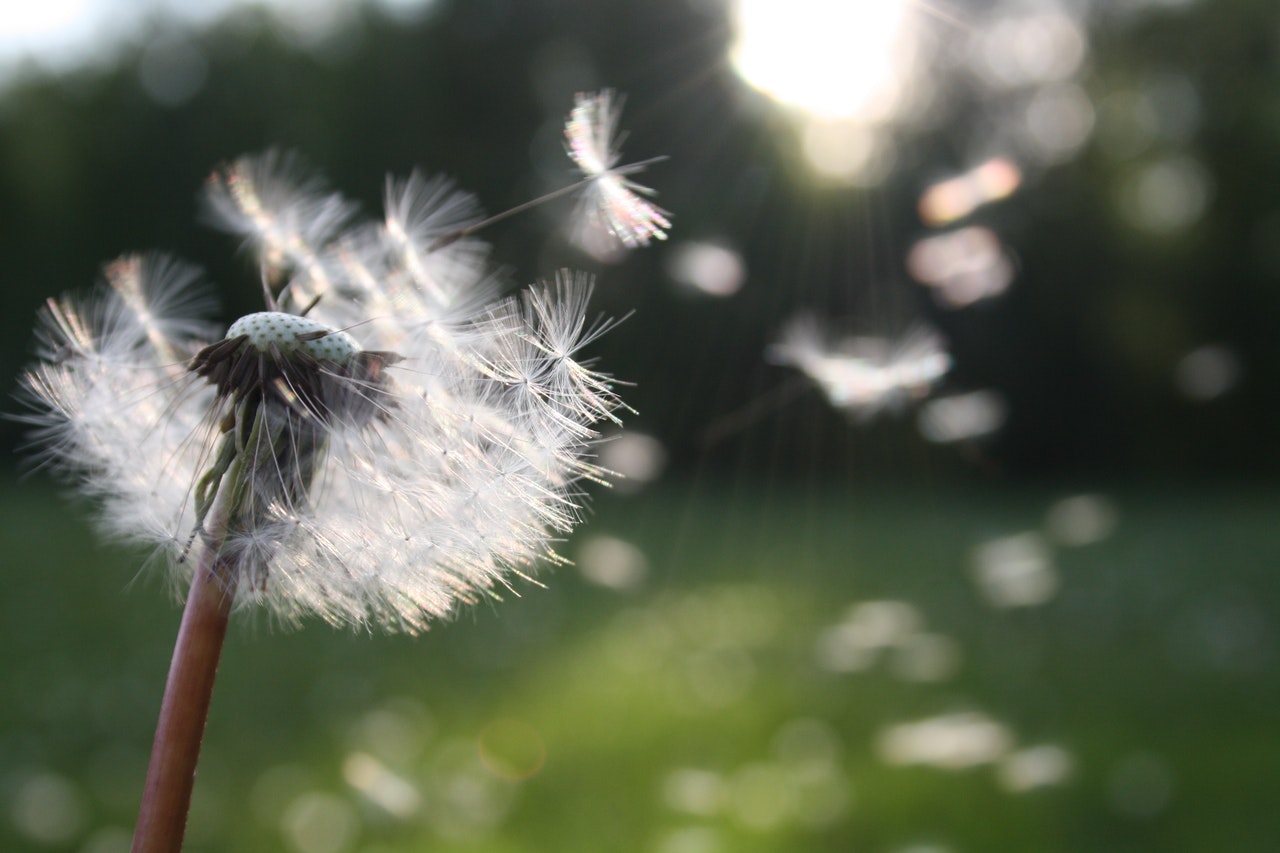Whether you have just gotten your first tonsil stone or suffer from them often, you might wonder why they have appeared. Although it can be difficult and sometimes impossible to determine the root cause, one major contributing factor is allergies.
Allergies and tonsil stones can be related because postnasal drip from your sinus cavity can transmit bacteria and viruses to your tonsils, where they form hard, white, mucousy tonsil stones. If you suffer from chronic tonsil stones, you might try treating your allergies to see if they clear up.
Let’s talk more about how allergies and postnasal drip can trigger the growth of tonsil stones. You’ll learn the facts and pro tips on preventing allergy-related tonsil stones.
Tonsils Stones Might Be Related to a Postnasal Drip
Tonsils and adenoids are part of the immune system that filter out bacteria and viruses from the air that you breathe and the foods you eat. Because they are one of your body’s frontline defenses against infection, they are prone to infections themselves.
system that filter out bacteria and viruses from the air that you breathe and the foods you eat. Because they are one of your body’s frontline defenses against infection, they are prone to infections themselves.
Postnasal drip is excess mucus that runs from your nose and sinus cavity down into your throat. Often, allergies can increase your body’s mucus production, causing an uncomfortable stream of mucus to run down your throat.
drip is excess mucus that runs from your nose and sinus cavity down into your throat. Often, allergies can increase your body’s mucus production, causing an uncomfortable stream of mucus to run down your throat.
The excessive amount of mucus transferred from your nose to your throat can cause several problems, including a sore throat, congestion, and especially tonsil stones.
What Causes Tonsil Stones?
Tonsil stones are caused by a bacterial infection of the throat or tonsils. Certain factors can trigger the growth of a tonsil stone, such as food debris trapped in the folds of your tonsils, bacterial growth in the mouth, and exposure to infections. When an excess of anaerobic bacteria grows in your throat, your body triggers an immune response, sending white blood cells to fight the infection.
of the throat or tonsils. Certain factors can trigger the growth of a tonsil stone, such as food debris trapped in the folds of your tonsils, bacterial growth in the mouth, and exposure to infections. When an excess of anaerobic bacteria grows in your throat, your body triggers an immune response, sending white blood cells to fight the infection.
These white blood cells can build up and harden, like a pimple, as they are exposed to excess mucus and grow more bacteria, forming what we would call a tonsil stone.
Tonsil stones are usually made up of mucus, bacteria, and dead white blood cells, which is why they are typically white or yellow. But there would be no tonsil stones without bacterial infection, and postnasal drip can seriously contribute to sinus infections and tonsil stone formation.
A 2019 study from Singapore Centre for Environmental Life Sciences Engineering estimated that we breathe in over 100,000 microorganisms every single day. Usually, the hair-like cilia in our noses filter out the microorganisms we inhale, or our mucus traps them.
from Singapore Centre for Environmental Life Sciences Engineering estimated that we breathe in over 100,000 microorganisms every single day. Usually, the hair-like cilia in our noses filter out the microorganisms we inhale, or our mucus traps them.
However, postnasal drip can transfer the bacteria that we inhale deep into our throats, causing infection and your tonsils to produce stones.
When your body produces excess mucus that runs down your throat, the bacteria and allergens you inhale are transferred to your tonsils. If they cling to your throat, these bacteria cause an infection, causing tonsil stones.
6 Tips for Treating Allergy-Induced Tonsil Stones
If you have allergies, you already know how difficult it is to control how much mucus your body produces when exposed to allergens such as pollen, dust, and pet dander. But there are several preventative measures you can take to control your allergies and reduce your risk of getting tonsil stones.
Drink More Water Than Usual
Drinking water is critical when you want to avoid tonsil stones. Since tonsil stones are formed by bacteria in your throat, drinking lots of water can flush out infections and dislodge any debris and bacteria that grows around your tonsils. Water also makes your mucus runnier and thinner , which can keep it from sticking to your tonsils and throat.
, which can keep it from sticking to your tonsils and throat.
Drinking plenty of water also helps your body flush toxins such as bacteria and viruses out of your body, which can help you fight tonsil stones before they form.
such as bacteria and viruses out of your body, which can help you fight tonsil stones before they form.
Water can also increase saliva production, which changes the chemistry of your mouth and introduces more oxygen, allowing you to eliminate bacteria from your throat.
production, which changes the chemistry of your mouth and introduces more oxygen, allowing you to eliminate bacteria from your throat.
Change Your Oral Hygiene Habits
We all know that gargling and flossing is a critical part of keeping our mouths in tip-top shape, but how many people actually do these things daily? If you are prone to tonsil stones or have one, gargling with hydrogen peroxide or saltwater can help you fight the infection in your mouth and make it inhospitable for the bacteria living in your throat.
with hydrogen peroxide or saltwater can help you fight the infection in your mouth and make it inhospitable for the bacteria living in your throat.
Gargling can also break up the mucus in the back of your throat, making it less likely that you will develop tonsil stones. Check out my recipe for a tonsil stone dissolving gargle that you can make at home.
Regularly flossing and brushing your teeth can also help you prevent and treat tonsil stones since these practices remove bacteria, sugars, and food debris from your mouth, keeping them from accumulating and forming tonsil stones.
If you suffer from chronic tonsil stones, you will want to invest in a water flosser or an oral irrigator. These tools are fantastic for flushing out the bacteria in your tonsillar area, and if you use them in the gentlest setting, they are great for removing tonsil stones quickly and painlessly.
or an oral irrigator. These tools are fantastic for flushing out the bacteria in your tonsillar area, and if you use them in the gentlest setting, they are great for removing tonsil stones quickly and painlessly.
I have a dedicated post on the best tonsil stone removal tools that you should also check out.
Flush Your Sinuses
Whether you use a NeilMed Neti Pot or another sinus-irrigating mechanism to break up your congestion, clearing your sinuses can help to remove bacteria from your respiratory system and prevent postnasal drip. Irrigators wash out all of your mucus, removing all of the bacteria that cause tonsil stones in the process, giving you relief from congestion while also reducing your chances of a bacterial infection.
or another sinus-irrigating mechanism to break up your congestion, clearing your sinuses can help to remove bacteria from your respiratory system and prevent postnasal drip. Irrigators wash out all of your mucus, removing all of the bacteria that cause tonsil stones in the process, giving you relief from congestion while also reducing your chances of a bacterial infection.
Take Allergy Medications
Taking an over-the-counter allergy medication , such as an antihistamine, decongestant, or mucus thinner, can help you manage your postnasal drip, which can prevent the formation of tonsil stones.
, such as an antihistamine, decongestant, or mucus thinner, can help you manage your postnasal drip, which can prevent the formation of tonsil stones.
If you take your medication before your symptoms appear, you will be able to control your body’s allergic response. For example, if you are allergic to pollen, take your medication before the pollen count spikes at night or before you go outside on a pollen-rich day.
Nasal sprays that contain xylitol are another excellent medication for the prevention of tonsil stone-causing postnasal drip. They can thin your mucus and open up your sinus passages, allowing you to blow the snot from your nose before it starts to run down your throat.
that contain xylitol are another excellent medication for the prevention of tonsil stone-causing postnasal drip. They can thin your mucus and open up your sinus passages, allowing you to blow the snot from your nose before it starts to run down your throat.
Xylitol nasal sprays also increase your saliva production, which adds more oxygen to your mouth, killing the anaerobic bacteria that cause tonsil stones.
Blow Your Nose As Often as Possible
If you feel mucus running down your throat, you will want to blow your nose more often.
Since allowing the excess mucus to run down your throat can contribute to the formation of tonsil stones and throat infections, eliminating the mucus from the source can help you manage your health. The next time you feel the postnasal drip kicking in, reach for a tissue.
Choose Hot, Liquidy Foods and Drinks
Everyone knows that chicken soup is supposed to help alleviate symptoms like congestion, but it does not have to be chicken soup to be effective. Hot liquids like soup and herbal tea break down mucus and keep you hydrated, helping you fight infections and expel excess mucus. Hot beverages can also break down and soften tonsil stones, which might help you get rid of them for good.
like soup and herbal tea break down mucus and keep you hydrated, helping you fight infections and expel excess mucus. Hot beverages can also break down and soften tonsil stones, which might help you get rid of them for good.
Conclusion
When you have allergies, postnasal drip can sometimes cause tonsil stones. Managing your allergies with medicine, nasal irrigation, and good oral hygiene can help you eliminate excess mucus and prevent it from running down your throat.
You can also use hot liquids and mouth rinses to fight your mucus buildup and tonsil stones. If you use these methods, you will notice your tonsil stones clearing up, and you will be able to breathe easily again.


